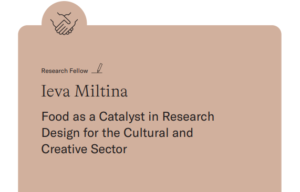Food and sex: can the two topics be related? How many aspects do they have in common?
Sex can be a taboo: for many reasons, that we do not discuss here, it has been put aside from social speeches for long time. Now, time to bring it to society as a part of our human being has come.
The social movement trying to normalize sex speech and to make it with no judgment and acceptance is sex positivity.
Briefly, sex positivity is a respectful way of living and experiencing sex and what concern sex based on consent, open communication, acceptance and no judgment.
It involves not only the personal experience of having sex, but also the communication and the education about some topics, like gender, sexual orientation and so on.
How can food be a medium to discuss sex positivity?
The way humans live and experience sex and food, in the modern society, have some aspects in common.
Ready to enjoy it and asking yourself if you are living the sex with a positive attitude?
Let’s go!
Acceptance is the key in sex positivity as well as in eating
Accepting our own body is the first step to live our being human with peace and joy.
There is, sometimes, a tendency of not accepting our own bodies – excluding the cases of eating disorders that are something more serious and needing doctors’ opinion.
All starts from acceptance of our body, just the way it is.
The earlier we learn to accept ourselves, the sooner we will live food and sex with more curiosity and with no judgment.
Acceptance is one of the common aspect with food and sex positivity and the first key topic to connect the two.
Wanting and liking are important in both cases
According the study made in China in 2016 by Kang, Zheng and Zheng (file:///C:/Users/Master/Downloads/fpsyg-06-02044.pdf) sex and eating may have some cortical relationship.
Sex positivity and eating are strictly connected by the feelings of wanting and liking.
What generally emerges on different levels, is that females and males live differently the feelings of wanting and liking connected to sex and eating.
The results revealed that first, there was a positive correlation between wanting for sex and wanting to eat only for males. Second, the relationship between liking for sex and eating was also positive for males and not significant in females. Third, the correlation between sociosexual orientation and wanting to eat was significant only in females, and there was no significant correlation between sociosexual orientation and liking for eating. Fourth, emotional sex cravings (or emotional sexual activity) was positively correlated with emotional food cravings (or emotional eating behaviour), with a higher magnitude correlation in males than females (2016).
Desire is what moves us, most of the time
Eating is a basic need, as well as having sex.
This is something we often forget: primary needs are something we feel because they come from our biological way of being human.
There is a trend, in the modern society, trying to educate people to consider important their own desires.
Mental health starts from accepting our thoughts, our needs and our desires. And having a good relationship with our sexual life and our feeling about food is important to reach a balance and to live better.
Finally, yes, sex positivity and food can be considered as separate topics, because both have so many tints that make them hard to discuss. Nevertheless, they also have some mutual aspects and education through food can help to find a way to discuss sex positivity.
Starting from acceptance, that is the key aspect of sex positivity and – I would say – the key aspect to live a better life, in general.








